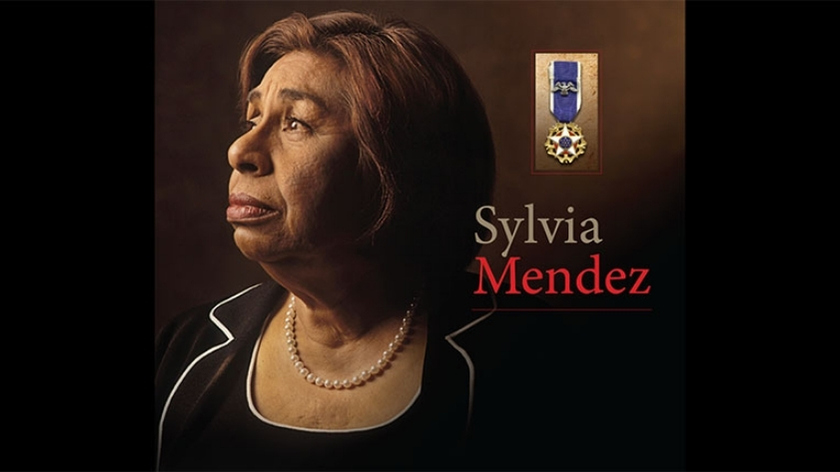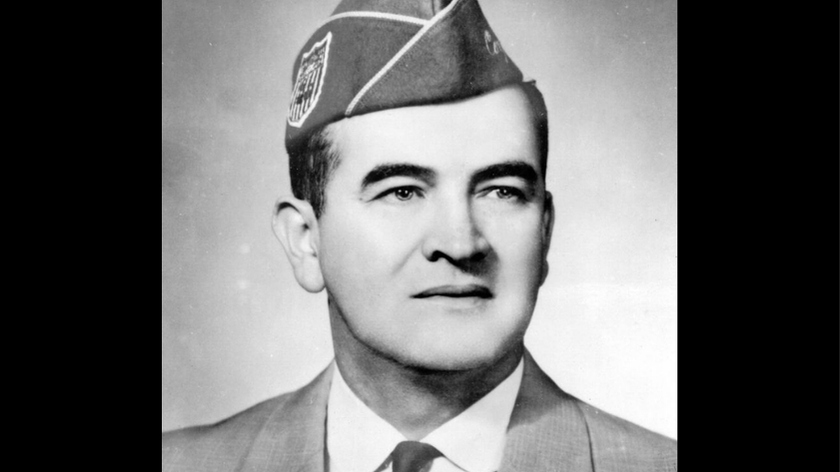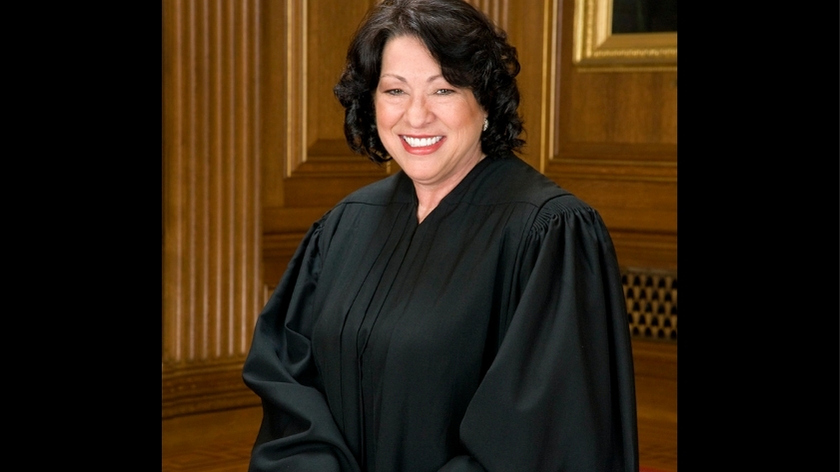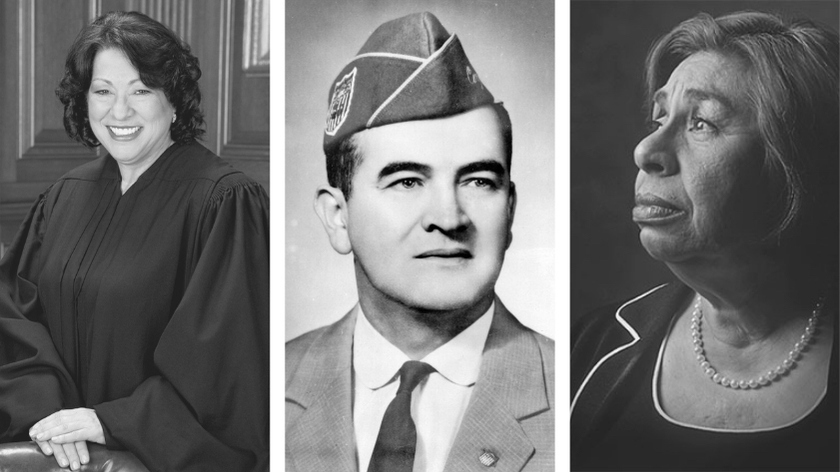Hispanic Heritage Month: Celebrating Three Inspiring Change Makers
The Hispanic population in the United States has faced a long road on their march towards equity and fairness. Treading that path of discrimination and violence is all too familiar to other minority groups in the United States. Their struggle continues in this present time and their efforts at fostering equity deserve recognition. This Hispanic Heritage month, it is only fitting that we reflect on outstanding examples of Hispanic perseverance and struggle against iniquity.
In celebration of Hispanic Heritage Month, we’re celebrating by sharing the stories of three inspiring change-makers.

Sylvia Mendez, American civil rights activist
As a small girl, Sylvia was sent to a Mexicans-only school. Her complexion being dark prevented her from reaping the full benefits of a good education. This fact was laid bare for her and the world to observe when her cousins, of fairer complexions, were permitted to attend the Whites Only school. The conditions at these schools were unequal, Mexican schools lacked books, materials, funding, and adequate instructors. Sylvia’s parents observed this and sued the State of California, ultimately winning the case known as Mendez V. Westminster.
The plaintiffs argued that Mexican-Americans were essentially white because of their European ancestry. The court rejected this argument however and instead focused on the poor results in terms of English proficiency and civics that were all too common in Mexican-only schools. The court reasoned that comingling of students together promoted a common understanding and ideal that with time could foster a common American identity. The court reasoned that such conditions benefited all students equally and that segregating students of Mexican lineage not only stifled their learning but harmed the community as a whole. The court would also cite the equal protection clause of the constitution and would observe that learning outcomes were blatantly uneven across segregated schools.
This case paved the way for the Brown V. board of education 10 years later which would ultimately outlaw educational segregation in perpetuity. The Warren court headed by Earl Warren would ultimately decide that case, little known though is that Earl Warren was the Governor of California when Mendez V. Westminster was decided. One cant help but think that Sylvia Mendez and her compatriots’ struggle may have colored his thinking and that Sylvia Mendez, though an obscure figure, may have shaped American history.

Dr. Hector P. Garcia,
Dr. Hector P. Garcia was born in 1914 in his native Mexico. Immigrating to the United States later on and going on to attend the University of Texas, there eventually earned his medical degree. Garcia would go on to serve in WWII and after achieving the distinction of a long military career. Garcia however was conscientious of the discrimination which occurred against Hispanics, even those who had shown the full measure of their devotion to this nation and fell in battle.
Felix Longoria was one of these casualties. Felix would be denied burial in his hometown of Three Rivers Texas, because of White supremacy. The powers that existed in Three Rivers didn’t like the idea of a Hispanic person laying in the ground that he lived on and that his family continued to live on. From their prejudice and to their eternal disgrace they prevented his body from being interred.
Garcia advocated for Felix and his family, petitioning freshman senator and later President Lyndon B. Johnson to intercede. Johnson, seeing the injustice at being denied burial, did intervene. Johnson because of Garcia would see that Felix was interred with full Military Honors at Arlington National Cemetery. The first Hispanic American to be accorded that most deserved honor. Garcia would go on to work for the betterment of veterans, founding the American G.I. Forum, and advocating on behalf of veterans and Hispanics for the rest of his life. In addition to numerous humanitarian and military decorations, Garcia would receive the Presidential medal of freedom in 1984 and would be eulogized by sitting President Bill Clinton in 1996 at his funeral.

Sonia Sotomayor, Associate Justice of the Supreme Court
Last but certainly not least is Associate Justice of the Supreme Court Sonia Sotomayor. Justice Sotomayor is of Puerto Rican Descent and a native of the South Bronx. She grew up under difficult circumstances, the working poor class of NYC. Particularly the minorities therein struggled against discrimination and inequality. Sotomayor would go on to attend and graduate from Princeton University and Yale School of Law respectively. Serving as a public defender, prosecutor, and Judge, her career would culminate in her appointment to the Supreme Court under the tenure of President Barack Obama.
Justice Sotomayor is cognizant of her identity as both an American and Latina. She takes pride in her nation but stresses that her heart and soul are inextricably linked with her Latin identity. Justice Sotomayor is a role model for Latinas across this nation and we do well to recognize her. This author has read and thoroughly enjoyed her book “My Beloved World”, far from being solely autobiographical, her book raises important questions about free thought, race, class, and gender. I’d recommend it to anyone for a good and thought-provoking read.
Related: Mental Health Courts: the Need to Reevaluate it
The Hispanic population has made important contributions to culture and history.
This Hispanic Heritage month I think it would be worthwhile to take some time and reflect on their history and the legacy they leave us. Go out and enjoy some authentic Latin food, listen to some reggaeton, or brush up on the history of Latin American revolutions and struggles for freedom. Then look to contemporary Hispanic American efforts at achieving equality and consider how you might help. Hispanics face race, class, and other barriers today as they did in the past. They are overrepresented in prisons and underrepresented in Universities. The recent and horrific government policy of separating children from their parents at the southern border has harmed undocumented mainly Hispanic immigrants severely. Go out and stand up against things like that. ¡Feliz mes de la herencia hispana!
Tags In
Categories
More Stories
- Inspiring Change: A Step-By-Step Guide to A Campus Activism Event
- Advocacy Through Social Media: Extending Beyond Your Platform
- Unwrapping the Future: The Growth of Plastic Film Recycling
- My Visit To The State House in Trenton
- Lost Childhoods: Exposing the Triad of Illegal Immigration, Child exploitation, and Abuse
- The Realities of The Homeless Crisis
- WHO RUNS THE WORLD: Women Who Advocate for Diversity, Equity, and Inclusion

